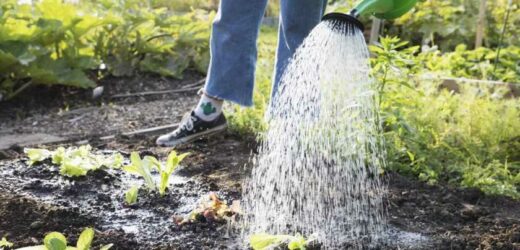THE crispness of your garden during the winter can be quite the sight – but Jack Frost can wreak havoc on your landscape.
Tending to your garden in the colder months can prove quite the challenge and potentially could undo all your hard work during the summer months.
But it can also prove the perfect time to prepare for spring – if you know how to beat the winter bite.
Thankfully, Gardening Express have revealed the five mistakes Brits should avoid to keep their flower beds and vegetable patches in good condition.
The company'sCEO Chris Bonnett explained: "The way in which we care for our garden throughout winter is really important for the following spring when our gardens are ready for us to get back out there."
He told Birmingham Live: "It’s really easy to make some mistakes throughout this time without even being aware of them!"
The green-fingered guru said one of the most common mistakes many people make is thinking a regular watering cycle and fertiliser will ensure beautiful blooms the following year.
But it can actually spell the end of your beloved outdoor plants – as winter is the time for them to rest.
By fertilising them during a period of low growth – due to the lack of sunlight – the plant could die.
Over-watering your greenery will also spell trouble, as the excess water could drown the plants or cause root rot to develop.
Another common mistake gardening fanatics can often make is not adding mulch over their exposed roots.
Covering up the exposed roots of delicate plants provides an extra layer of warmth and can create a handy border that suppresses winter weeds.
Winter gardening tips
What to avoid if you want to ensure your garden stays green this winter:
- Over Fertilising
- Watering
- Not adding mulch
- Not moving crops
- Forgetting to cover crops
And the best part is, you can use the materials you find while cleaning up your yards, as you simply need dead or decaying organic material, such as grass clippings, bark or even fallen autumn leaves.
It transforms into nitrogen-rich feed as it decomposes, improving the fertility and health of the soil – while adding a bit of character to your garden too.
On the subject of sensitive plants, some may have to be moved into a sheltered area to ensure their survival.
Crops still growing in the winter should be moved inside – such as in a greenhouse – or in a less exposed area of your garden.
It is unlikely these crops will overwinter well when facing the harsh elements. Plants which lose their leaves should be fine inside a shed as they become dormant.
If crops remain outside, covering them with a protective fleece is brilliant way to save them from damage. When combined with a mulch, fleecing can be very effective and guard against wind chill, the soil temperature dropping too low, snow and hail.
Chris continued: "By highlighting these mistakes, we’re hoping that it will help people across the country to ensure their gardens are in perfect condition for the spring!"
Source: Read Full Article



